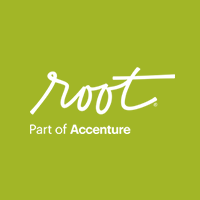Intro
If you are someone who has struggled with fusing your personal passion with your profession, you are not alone. The excerpt from Dan Pontefract’s THE PURPOSE EFFECT: Building Meaning in Yourself, Your Role and Your Organization might be just the book you need to read next. Check out the following excerpt and see how Dan believes your personal purpose and workplace purpose can intersect.
Making Mary Merry
Mary Hewitt was not the first team member I had ever dismissed. But she was—and continues to be—my most memorable.
When I started working at Crystal Decisions in 2002 as an Education Director, Mary held the title of Trainer. She had been performing the role for three years prior to my arrival. As a trainer, she would traverse the North American continent delivering different types of instructor-led classes to customers, partners and employees alike. When Mary was back in the office, away from airplanes and training rooms, it provided a chance for the two of us to catch up on her well-being, the team, and so on. It is fair to say we did not exactly get along at first. Those early conversations through my initial year as leader were at best perfunctory and at worst labored.
After a year or so, I invited Mary into one of the breakout rooms and asked how she was doing. I wondered if she was truly feeling good, full of meaning. By immediately shifting the focus of our conversation, Mary indicated she would be extremely grateful if I could eliminate some of the travel in her role. In fact, she hated being a trainer, particularly because of the travel. After some personnel shuffling, Mary switched roles and became a courseware developer, parking herself each day in an office chair rather than an economy class airplane seat.
After another year or so, Mary and I began having more conversations, this time focusing on her career and her life. Over a period of time and plenty of discussions, Mary shifted into a project management role. She remained grounded, working only in Vancouver. One day, after roughly a year in the new role, and getting the sense that things still were not right, I pulled Mary aside again and asked, “Do you think it is time you embarked on something that really is of interest? Do you know your true calling?”
Perhaps it was tough love. Maybe it was my attempt to help her to find her why, her bliss, her purpose. Whatever the case, it turns out Mary was feeling the same way. She wanted out. We then figured out a way to terminate her contract—together with a severance package—and she went out the front door of the office ready to begin seeking her personal purpose. She was escaping the job mindset that had characterized her roles as trainer, courseware developer and project manager. Her focus now was on developing, defining and deciding her new “why.” She took no issue with the organization—in fact she loved volunteering, being part of the team’s community involvement and to this day remains dear friends with several ex-colleagues—but she simply had been occupying time in various roles that were not fulfilling her personal purpose. The alignment between personal, organizational and role purpose was missing. Mary needed to seek out and establish the sweet spot.
For the next several years, she continued to develop, define and decide who she was going to be in life and at work. We continued to meet from time to time as well. Eventually, she meandered back into social work—achieving another Master’s degree—and it all came together. Today, her working life is now dedicated to the betterment of those in need. Mary works with personal and role purpose as a Clinical Therapist in Halifax at the Nova Scotia Health Authority, an organization that bills itself as “a community of caring, compassionate people who care deeply about health, healing and learning.”
One aspect of Mary’s story relates to her perseverance. She did not let the trappings of a job or paycheck mentality become a lifetime crutch. It took a while, but she eventually figured out her ideal path. She also refused to climb the career ladder for more pay or power. Mary was steadfast and determined to find an organization that matched her redefined personal purpose. Put differently, she had to first rediscover her goals and her interests and then she had to seek out an organization and a role that matched.
“I realized and then decided,” Mary informed me, “that what I get paid to do needs to fit with what I know and feel to be my personal purpose.” She knows some jobs and even some tasks in a job will not always be rewarding. But along her journey, she discovered a key difference. “Where it became soul-destroying was when I realized I had done the ‘work for a paycheck job mindset’ for so long that I was out of alignment with my principles, values and beliefs. They were still at my core, but my core had gotten very small and personally, harder and harder for me to connect with.”
But there was another lesson Mary shared with me. “Certainly not everything I do, even now, fits exactly with my personal purpose. I have had to realize that some of the uncomfortable steps are still in the overall picture, contradictory to my overall purpose.” Mary had recognized that any role, in any organization, is going to be made of elements from the job, career and purpose mindsets. “But by recognizing,” she continued, “that personal purpose is not always consistent with what I get paid to do, I get to make a conscious, informed choice. The paycheck job mindset may in fact be enabling the steps toward role purpose.”
Role purpose is tricky. Mary’s story demonstrates it can take a while to achieve, too. As we explore the rest of this book, keep in mind Mary’s last point. More often than not, a role will be made up of aspects of the job and career mindsets. How one defines their personal purpose—and how the organization demonstrates its purpose—will be factors in achieving role purpose. But, there will always be elements of a role that are uncomfortable. Perhaps it is the alignment between personal and organizational purpose that predicts whether the majority of time spent in a role can be accomplished with purpose.
From the book, THE PURPOSE EFFECT: Building Meaning in Yourself, Your Role and Your Organization by Dan Pontefract. Buy the book here. Copyrighted and used with the author’s permission. Visit Dan at www.danpontefract.com
About the Author
Dan Pontefract is Chief Envisioner at TELUS, a Canadian telecommunications company, where he heads the Transformation Office, a future-of-work consulting group that helps organizations enhance their corporate cultures and collaboration practices. Previously as Head of Learning & Collaboration at TELUS, Dan introduced a new leadership framework–called the TELUS Leadership Philosophy–that dramatically helped to increase the company’s employee engagement to record levels of nearly 90%.He is the author of THE PURPOSE EFFECT: Building Meaning in Yourself, Your Role and Your Organization as well as FLAT ARMY: Creating a Connected and Engaged Organization. A renowned speaker, Dan has presented at multiple TED events and also writes for Forbes, Harvard Business Review, Psychology Today and The Huffington Post. Dan and his wife, Denise, have three young children (aka goats) and live in Victoria, Canada. He is also an Adjunct Professor at the University of Victoria.






